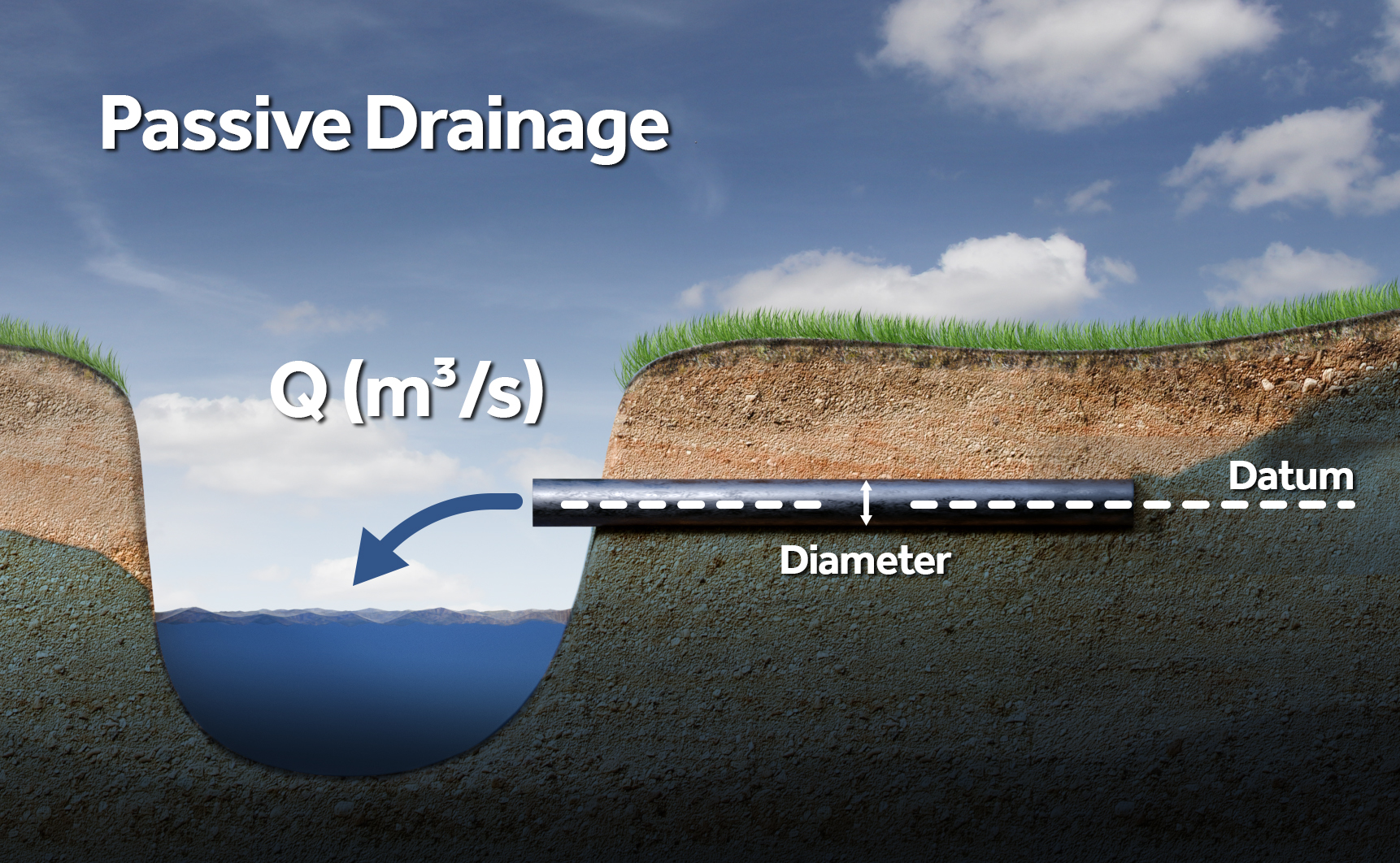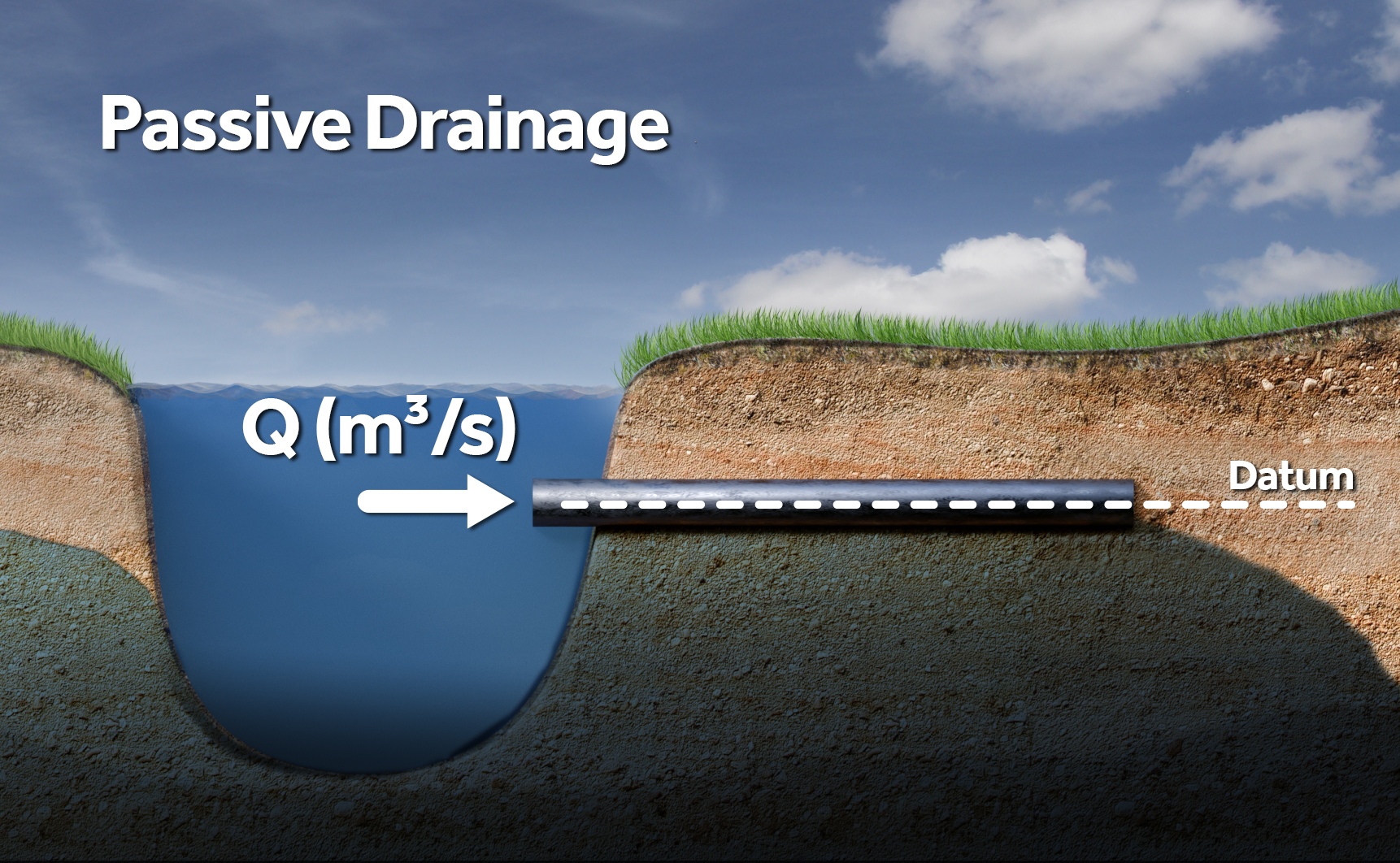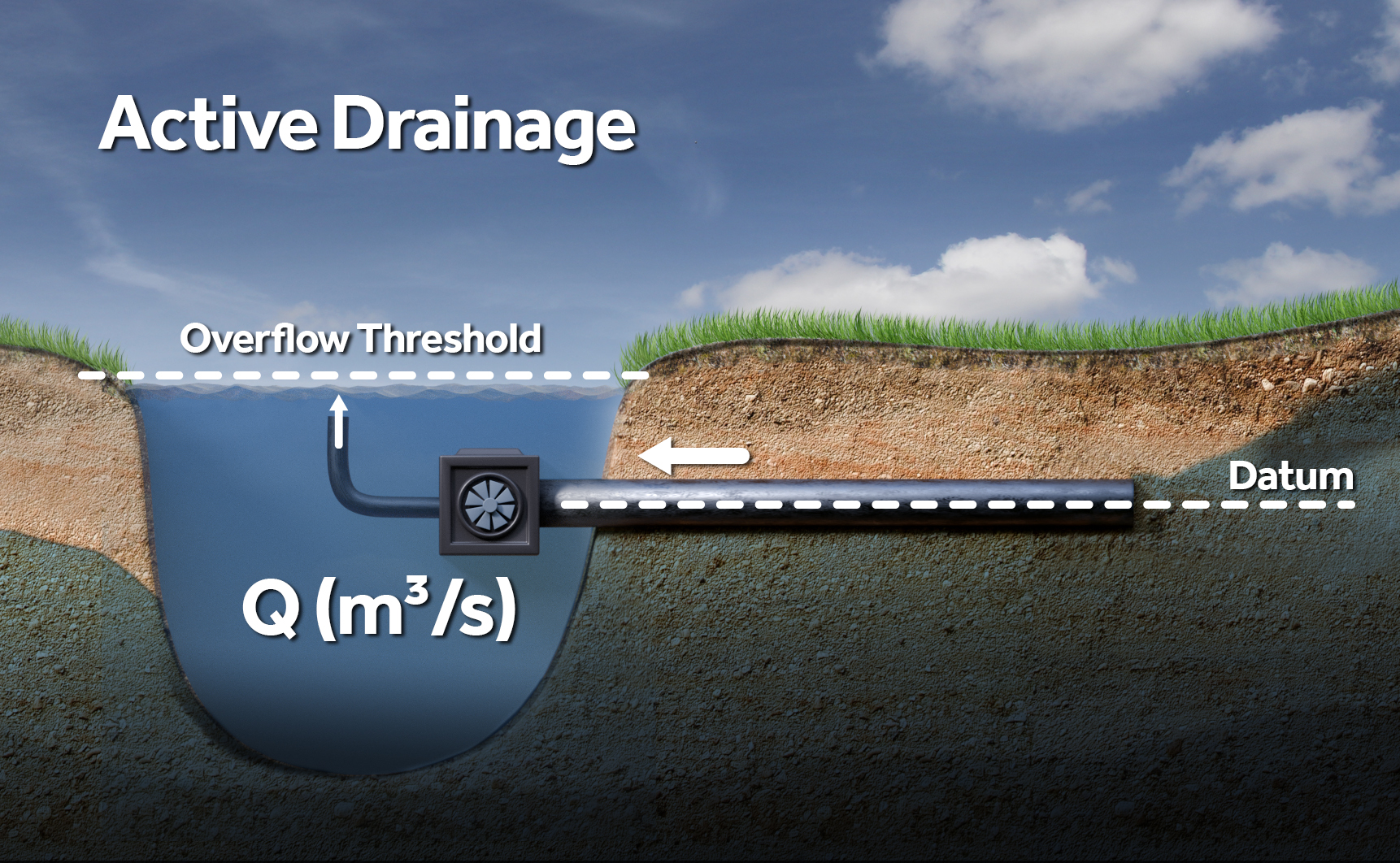Drainage (Water Overlay): Difference between revisions
No edit summary |
No edit summary |
||
| Line 23: | Line 23: | ||
<gallery widths=500px heights=300px> | <gallery widths=500px heights=300px> | ||
File:passive_drainage_positive.jpg | File:passive_drainage_positive.jpg | ||
File:passive_drainage_negative.jpg | |||
</gallery> | </gallery> | ||
Revision as of 14:12, 13 December 2024
Drainages provide connections between the saturated ground layer and nearby waterways, draining groundwater to levels which are optimal for agriculture. Drainage can be passive, where water drains based on water head differences, or active, where the water is pumped from the drain to the nearby waterway.
![]() A drainage is an area-based building.
A drainage is an area-based building.
| Icon | Key | Unit | Range | Description | Default value |
|---|---|---|---|---|---|
| |
DRAINAGE_Q | m3 per second | -3.4028235E38 to 3.4028235E38 | The maximum pump flow capacity, defined in cubic meters per second. | 1 |
| |
DRAINAGE_DATUM | datum | -10000 to 10000 | The datum height (int meters) of the drainage. | -10000 |
| |
DRAINAGE_ACTIVE | boolean | 0 or 1 | Whether the drainage is actively pumped. | False |
| |
DRAINAGE_OVERFLOW_THRESHOLD | m + datum | -10000 to 10000 | The threshold of the water end-point of the drainage. | n/a |
Notes
- A drainage should have a part that overlaps with land and a part that overlaps with water. These should be two separate polygons. Neither polygon should overlap with the edge of the waterway.
There are three use cases that can be modeled using a drainage:
Passive Drainage
A passive drainage lets water flow from the drainage pipes into the waterway. I should therefor always have a positive Drainage Q.
- Note: when the waterway level is higher then the Drainage datum (Water Overlay) flow into the pipes is blocked.
Active Drainage Negative Q
An active drainage with a negative Drainage Q can pump water from from the waterway (with a lower level) up into the drainage pipes.
The pump will keep pumping until:
- The level in the waterway drops to the Drainage overflow threshold.
- The the groundwater reaches: Drainage datum.
Active Drainage Positive Q
An active drainage with a positive Drainage Q can pump water from the drainage pipes up into a waterway (with a higher level).
The pump will keep pumping until:
- The level in waterway reaches the Drainage overflow threshold.
- The the groundwater drops to: Drainage datum.








